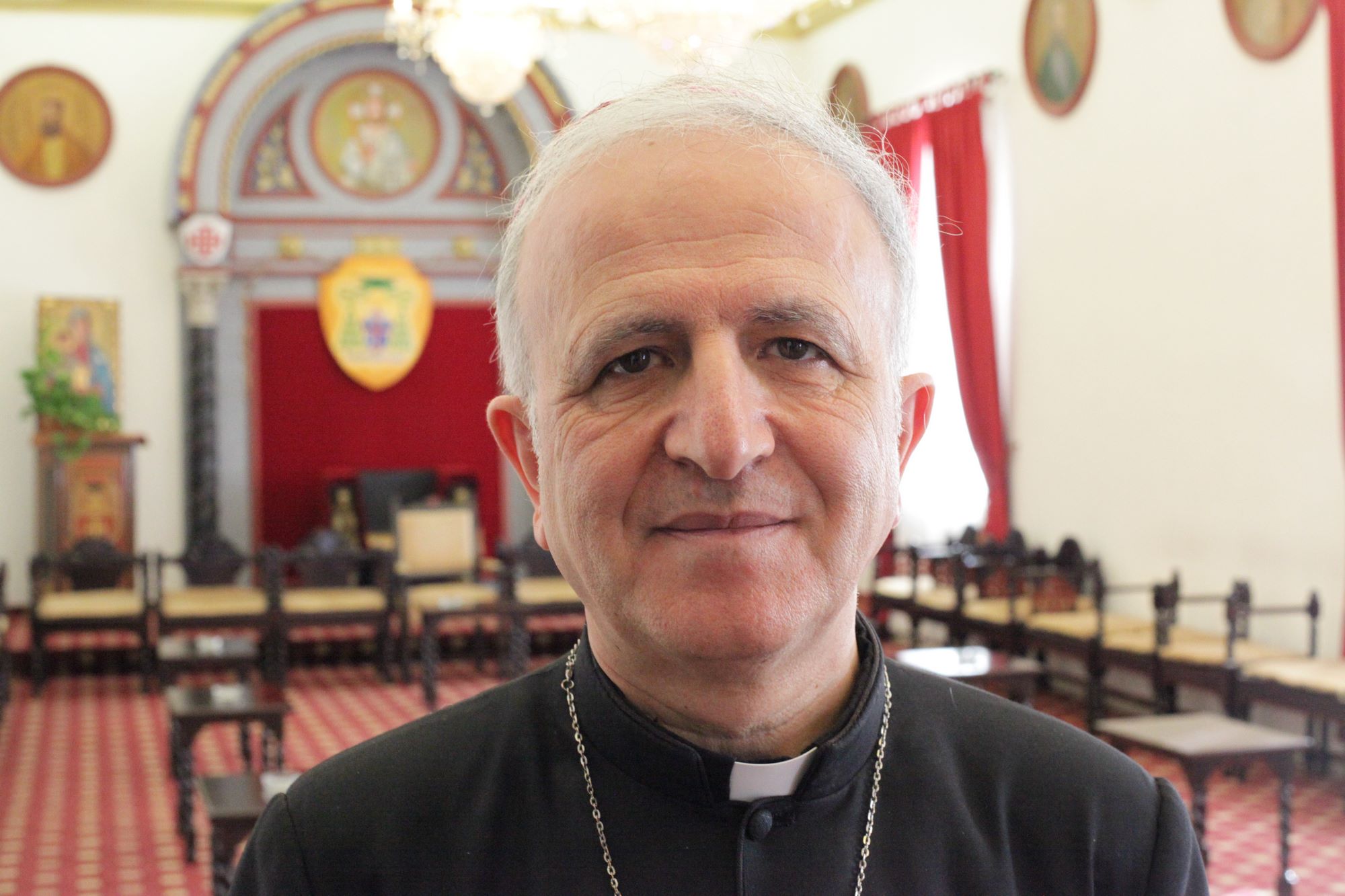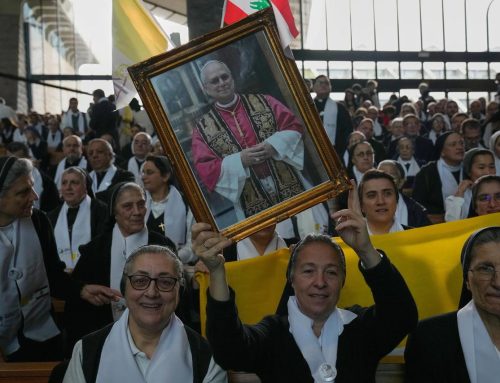An interview with Msgr. Shomali, Patriarchal Vicar for Jerusalem
FRANÇOIS VAYNE
Msgr. William Shomali, the whole world is shocked by what is happening right now in Jerusalem. The situation seems hopeless. How do you endure these events at the level of the Christian community?
We are shocked by the daily rhythm of this new wave of violence that has been provoking the Holy Land since the beginning of October, resulting in a large number of victims on both sides. Hatred increases and as a consequence there is violence, which is a way to “vent” one’s hatred towards another. The current situation is the result of a failed peace process and reminds us of the urgent need to quickly find a political solution, which is in the interest of both parties.
The majority of Palestinians, as well as the small Christian community, fear a third Intifada with disastrous consequences, absurdity and futility. The Christian community is worried because with each wave of violence comes a new wave of migration and a decrease in the Christian community, which is already down to a record low.
Is it correct to refer to a third “Intifada”?
The manifestations indicate a third Intifada, with the difference being that neither the Palestinians (including Hamas) nor the Israelis want it. We ought not to forget that Mahmoud Abbas did everything possible to put an end to the second Intifada.
The summary executions of suspects can give the impression that people do not matter. How does the local Church, which you represent, react?
The disproportionate use of force, the use of soldiers, does not favor a climate of détente. On the contrary, violence has increased since the Israeli Prime Minister has allowed the summary executions of all suspects. We must also condemn all of the other violence, such as killing or injuring someone with a knife who was found in the wrong place at the wrong time, or hitting people with cars. Here too it would seem that life has no value. The Assembly of Catholic Ordinaries of the Holy Land has, since the very beginning, condemned every attack on human life. The message Pope Francis gave on Sunday, 18 October, recalled the same principle.
Can you identify the origin of this burst of violence and hatred in the Holy Land, before which we all feel so helpless, and explain the cause of these tragedies?
The generation of young people who protest and express their anger is the generation that was born after the Oslo Accords. They are a generation that is tired and frustrated by the failure of the peace process, and want to live in their own state, like all other peoples. For 10 years, Abu Mazen has been working towards a political solution and, at present, it still remains at the starting point. The spark that caused this blaze was the Palestinians’ sentiment of outrage at facing the risk of the division of Al Aqsa. This is why there is need to prevent the status quo from changing. The religious sentiment of the Muslim youth is very strong.
Faced with what appears to be a dead end, what does the Catholic Church in Jerusalem say about those Palestinians who opt for the extreme choice of violence?
I need to speak to both parties, not only to one, because there is a need to find a radical solution and not a psychological appeasement. I will tell the Israelis not to be afraid of a Palestinian state, and I will tell the Palestinians to believe in a political solution. Although it may take a while, it is attainable.
In your opinion, what emergency solution could enable a return to tranquility?
The offensive visits to the Temple Mount must be stopped, those which disturb the Muslims during their prayer, but without preventing tourists and pilgrims from visiting a place that they too consider holy.
On an international level, do you think that a possible embargo on Israel could change anything in the long run?
More importantly than an embargo, there must be strong international pressure exerted by the major powers and the United Nations, a consistent and effective pressure. We want results on the field more than disturbing and painful action.
People are afraid of coming on pilgrimage to the Holy Land with the current situation of insecurity, what message would you give them to encourage them to come?
Despite the situation of violence, pilgrims continue to be respected by all. According to the Israeli Minister of Tourism, during the month of October Israel received 100,000 visitors. That is much less than what is normal for this month, which is usually the busiest of the year. I ask the dioceses, parishes and travel agencies to encourage pilgrims not to cancel their trips over the coming months. Nothing threatens their lives and their safety. There is proof of this in that no pilgrim has been disturbed to date, even on the most difficult days we have experienced since the last Gaza war.
Source: Vatican Insider






